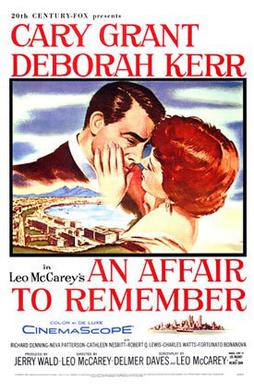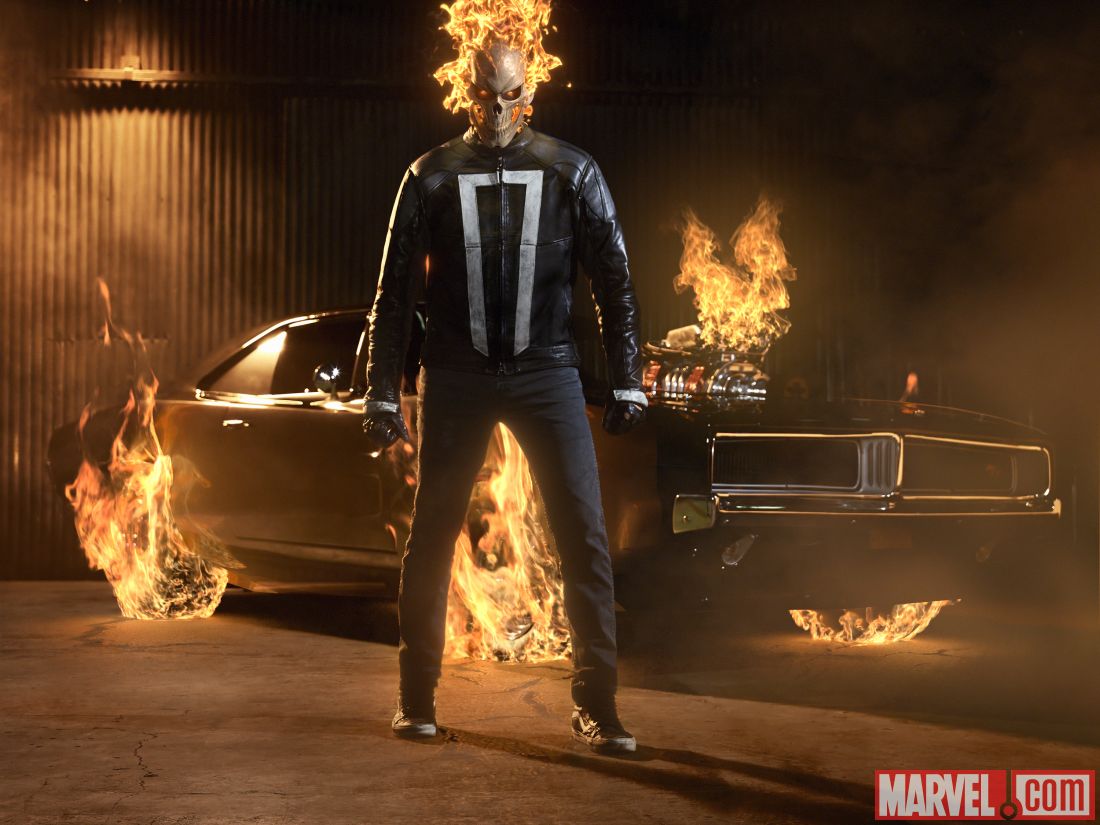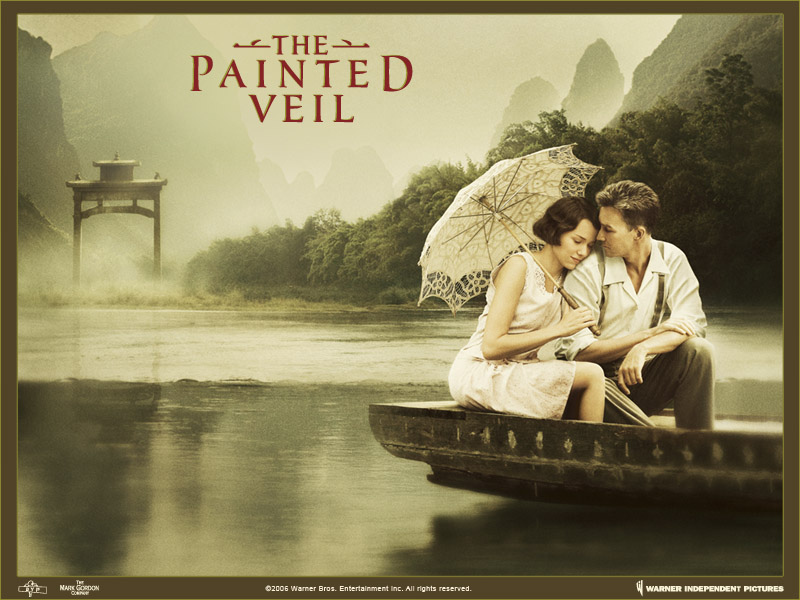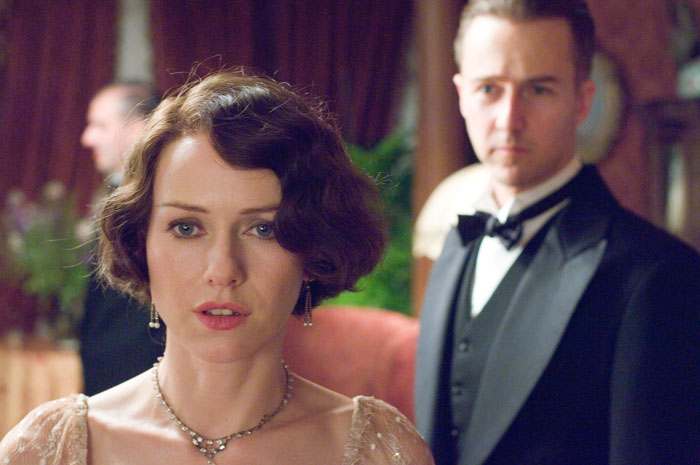I didn't even bother to see
Suicide Squad in the theater, so disappointed have I been with the major DC movie adaptations in the last decade (excepting of course Nolan's excellent Dark Knight trilogy). All the same, with the movie having just come out for rental, I decided to do a little run-through of the most commercially successful films outside of Nolan's Batman movies:
Superman Returns (2006)
Director: Bryan Singer
This movie isn't "bad" per se. It's just a bit dull. It comes off now, ten years later, like a weaker prototype of what J.J. Abrams did in 2015's
Star Wars: The Force Awakens.
I saw this movie upon its release in 2006, and I seem to recall a second viewing at home maybe a year later. I'd never felt the desire to see it again, and this third viewing confirmed why. While it avoids any major pitfalls and does a decent enough job, there is simply nothing which sets it apart as an especially remarkable superhero movie.
The story draws from the more successful Superman movies of the past, most specifically the 1978 original directed by Richard Donner and starring Christopher Reeve. The 2006 movie sets up Lex Luthor as the arch villain again, and his grand scheme involves killing billions of people in order to set himself up as the sole owner of a new, virgin continent of his own creation. While there are a few added elements to
Returns, this is basically the same template which the 1978 movie used. One addition is how the fuel for Luthor's mass homicidal scheme are crystals which he finds in Superman's Fortress of Solitude. The problem is that this plot point raises a ton of questions which go unanswered in the movie, along with Luthor's notion that he'll be able to manufacture futuristic weapons using Kryptonian technology learned from the crystals. Yet, once he hatches his plan, he hasn't built a single weapon. How exactly does he plan to defend his newly-growing continent? With his three henchmen and a few machine guns? Pretty shoddy planning for a "criminal genius." There are several plot points such as this, where the basic idea was decent, but the details in the execution were sorely lacking.
A major issue for many Superman movies is the simple fact that the character is simply not terribly interesting outside of his dazzling and immense powers. Superman/Clark Kent is not a tortured soul. He is not a brilliant tactician or a very cerebral character. He has always been a fairly humorless boyscout. This means that his entertainment value typically comes from one of three sources - displays of his powers, intriguing villains, and humor. For the former,
Returns actually does a decent enough job. The obligatory montage of Superman saving various people is fun, especially his facing down of a maniac with a hyper-charged Gatling gun. Other sequences with the Man of Steel swooping around and using his heat vision, superbreath, and other abilities are mildly engaging, but nothing stands out as particularly clever. The second source of possible fun, the villains and the havoc they wreak, is lacking in
Returns. Yes, Luthor is pure evil. We've always known that, just as we've always known that Superman has as firm a moral compass as they come. The one clever turn is how Luthor embeds Kryptonite into his new continent to out-maneuver his nemesis, but beyond that, there's nothing much. If Marvel's Captain America movies have shown us anything, they've shown us that even a flawlessly righteous character, such as Steve Rogers, can be given moral dilemmas to grapple with. And such characters can be put into situations which require lateral thinking and/or stunning uses of their abilities.
Returns never quite gives us enough to top what we'd seen before.
 |
These three thugs constitute the entire defense force of the
newly established continent of Luthor's making. Just how long
did he think he was going to be able to hang onto this fruit
of his intellectual labor? |
If the movie had redirected its effort, it could have added some depth or shown some imagination with its story. Instead, we get what I found to be a boring subplot about how Lois Lane has born Superman's child - an asthmatic five year-old who walks around dazed most of the time. The story wants us to feel some sort of romantic tension between Clark, Lois, and Lois's husband Richard, but it never really materializes. In fact, it leads to a few moments which make Superman look like a creepy stalker, such as when he's hovering outside of Lois's home, using his X-ray vision to spy on her and her family. I'm pretty sure Ma and Pa Kent imparted some sense of courtesy upon their adopted son, but you might not know it from
Returns. And this is typical of the movie - none of the characters or situations ever feels genuine or compelling enough to make the film stand out.
The scope is certainly what you want from a Superman movie, with an entire continent forming just off the east coast of the U.S. and causing massive destruction in nearby Metropolis. This gives the Man of Steel plenty to contend with, especially when he's suffering from Kryptonite poisoning. Watching him hoist the entire growing island is fairly awesome, but yet again there is a problem with the details. There is Kryptonite
literally growing around him, within a mere few feet of him, and yet he still has his powers. Nonsense, according to the rules laid out long ago in the world of DC, and as is known to virtually any red-blooded American.
And where, exactly, is the fun? To this day, the very best Superman movies -
Superman and
Superman II - had great comic moments that still stand up extremely well, to this very day. It's that third source of entertainment that makes an otherwise two-dimensional character fun to watch. Those early Reeve movies had great visual gags and a ton of solid deadpan humor. When you add Gene Hackman and Terence Stamp to the proceedings, you have movie gold.
Returns never comes remotely close to being as funny as those early movies. It does try, but the writing just isn't sharp enough, comedically. Kevin Spacey is a fantastic actor, but his Luthor is too joyless and cold to ever be very entertaining.
While I wouldn't have been bothered if Bryan Singer had been given a shot at a sequel, to see if he could improve on some foundations laid in
Superman Returns, I'm not surprised that his reboot only lasted the one film. It was ultimately a tepid movie that didn't really inspire much interest in seeing more of those iterations of known characters. And so the Superman movie franchise took a nap for several years. Until...
Man of Steel (2013)
Director: Zack Snyder
I have a hard time deciding if
Man of Steel is any better or worse than
Superman Returns, since they are such different reboots of the character. I am, however, confident in stating that it's still not on par with the 1978 or 1980 films. And it's not even close.
This was only the second time I've seen
Man of Steel, the first being when it was initially released in theaters. I didn't much like it back then, and my impression of it had deteriorated since. Upon this second viewing, though, I can see that I was being a bit overly harsh. I still don't think it's a terribly good movie, but it's not as horrible as the jokes about it suggest. Not
as horrible.
The plot is complex enough to make a simple summary tough, but I'll take a shot. We see the days or weeks before Krypton explodes, when Kal-El's father, Jor-El, places him into a space pod to send him away from their dying planet. The scientist Jor-El must fend off an oncoming coup staged by the fanatical General Zod. Kal-El is sent off in time to escape the dying Krypton, not long before Zod is foiled and sent to an interstellar prison, shortly before Krypton explodes. Years later on Earth, Kal-El's pod crashes in Kansas, where he is found and raised by the Kents, a pair of loving farmers who name their newfound son Clark. Clark's father, upon learning of his son's incredible abilities, tries to impart upon him that he must keep his abilities hidden from others for a while, even if this means allowing people at risk to be harmed or even die. When Clark becomes an adult, he seeks out and finds a Kryptonian scout ship buried in the Arctic, where he begins to learn about his true origins. Unfortunately, he also accidentally sends out a beacon which is picked up galaxies away by an escaped General Zod. Zod and his few surviving followers race towards Earth, which they hope to terraform and mold into a new Krypton. This plan would completely wipe out the human population, something which doesn't sit well with its adopted son, Kal-El/Clark Kent/Superman.
The actual foundation of the plot isn't bad. While writer David S. Goyer (with co-story credit going to Christopher Nolan) does dip into the familiar well of the character of General Zod, he doesn't just retell the story of
Superman II. And the added detail of having the entire genetic codes of all Kryptonians embedded in Kal-El's cells is fairly imaginative. They even put together a plausible reason for Zod to show up just as Kal-El embraces his identity as a hero for Earth. Even the notion of the massive "World Engine" and Superman's struggle to take it down is on a scale appropriate for a Superman story.
But yet again, the problems arise in many of the details. Even early on, when Jor-El is desperately trying to convince Krypton's leaders to send out to other planets in order to save some part of their race, it's not at all clear why and how they would be so idiotic as to ignore him. And when his wife, Lara, asks why they can't accompany their son on his life-saving trip to Earth, the response is a baffling, "It's too late for us." It is? Why the hell is that, Mister Brilliant Scientist??!! If you can send one body to another planet, why not one or two more? Such oversights make up several cracks in what otherwise purports to be a very smart plot.
 |
Superman snapping Zod's neck is the ash icing on the grim
cake that is Man of Steel. Couldn't we have gotten
just a little bit of fun from this movie? |
A major issue I have is one I know is shared by others critical of the movie, and this is the utter lack of humor. Trying for the grimmer tone which Nolan successfully tapped in his Dark Knight trilogy,
Man of Steel takes itself deadly seriously. The Nolan Batman movies did work in some decent levity, but
Man of Steel's Clark Kent is a tortured soul who cracks nary a smile throughout the entire movie. This is thanks to a slightly reworked backstory and a plot that allows for no humor whatsoever. I've generally felt that the best Superman tales and movies have a more upbeat tone and some great comedy, two things which the 1978 and 1980 movies accomplished brilliantly. Thanks to solid scripts and excellent deadpan acting by the likes of Christopher Reeve, Margot Kidder, Gene Hackman, and Terence Stamp, those early movies feature comedy that holds up right to this very day.
Man of Steel takes a scant few stabs at humor, but they lack any memorable punch. The film just feels like it's taking itself far too seriously nearly the entire time. This isn't helped by a third act which sees thousands upon thousands of people die, and then Superman kill General Zod by breaking his neck. I'm of the opinion that such dark themes and actions should be left to other superheroes. Let Superman be that one good guy who can still get the job done without him committing homicide or having to watch masses of people annihilated. If I want that, I'll go back and read my collection of Alan Moore's
Miracleman comics.
In that vein is what I consider the movie's greatest offense - Clark's dad telling him to let other people die. It's an absolutely horrible and contrived plot point. I assume that the writers didn't want us viewers to see Jonathan Kent as a delusional or simply dense fool, but that's how he comes off. A young Clark saves a bus load of schoolmates who are about to drown, and his father basically scolds him for it? And then tells him that he maybe should have let them die because he "thinks" Clark has some higher purpose? Are you kidding me? And never mind the ridiculous death scene, where Jonathan waves off Clark as he is about to save him from an oncoming tornado. What, did you forget that your son can move so quickly that he could save you and everyone else so fast that no one would even see him? The second of the two whammies with this ridiculous plot element is that it makes Clark a miserable figure. And I don't need my Superman moping around trying to figure out whether he should be helping people or not. I need him helping people without question, and then getting pressed by major threats like evil geniuses or megalomaniacs from space. Not daddy issues.
 |
This is about as light-hearted as things get. Henry Cavill's
impossibly handsome face spends way too much time in this
troubled glare. |
The story and characters are the sources of the movie's major issues, to be sure. The other film elements are actually decent, and sometimes even quite good. As with all Snyder movies, everything looks super slick. I do feel that CGI was overused, mostly during the opening scenes on Krypton, but otherwise it was blended exceptionally well with the live action. There are also several solid fight sequences between Superman, Zod and his acolytes, though it sometimes moves too quickly to have as much impact as it might otherwise have.
This does, however, bring up another issue with Zack Snyder, which is his clear emphasis on style and aesthetic over a tight story and genuine characters. All of his films feature scenes, costumes, and actors that really catch the eye. And sometimes they even hold your attention for a while. But once you get past the glamorous veneer, there is far too often not enough substance beneath it. Snyder is obviously a major fan of comic books, especially classic DC stories, and his movies attempt to be very faithful to the comic book tradition of memorable splash pages and iconic but static poses. These are things that make for great comics. The problem is that film is a different medium - one which can and should tell stories that are visually dynamic in ways that comic cannot be. Snyder seems to have some sense of this at times, but it is not consistent.
I'll give
Man of Steel some credit for trying to do something a bit different with such an old and classic character. Some aspects of it show some decent creativity, but ultimately the weaknesses are too much to make it a good movie in my eyes. While it may be different and more daring than
Superman Returns, I can't say that it's a better overall movie. All the same, the folks at DC and Warner Brothers decided that they were tired of watching Marvel raking in billions of dollars, so they whipped up their own comic book movie world, leading to...
Batman v Superman: Dawn of Justice (2015)
Director: Zack Snyder
Note: on this second viewing, I watch the "Ultimate Edition" blu ray, which adds about 20 minutes of footage not included in the theatrical release. That's nearly three hours, folks.
I originally reviewed this movie upon its theatrical release
in this post.
I've never gotten political on this blog, ever. But upon my re-watch of this movie, considering just how much money it made, I can't help but see a parallel with our recent presidential election. There are so many ways that I see the frequent and inescapable problems with
Batman v Superman that I was clueless enough to think it would bomb. But it didn't. It became one of the top 50 highest grossing films of all time. Just like I was stunned at the election outcome. There's clearly something that many other people are seeing and enjoying in this movie that allows them to overlook glaring flaws that many others and I can't help but notice.
I won't rehash the plot or most of my original issues with the movie. I will state that the Ultimate Edition does add a few worthy sequences which smooth out a few of the plot points, mostly in relation to the manufactured animosity between Superman and Batman. This is really the only aspect of the plot which is helped by the extra footage. None of the many other shallow, weak, tangential, or illogical plot points are improved or mended in this "definitive" version of the film.
During this second viewing, I almost started taking notes in order to keep up with the plot problems and general issues with the film. They come that frequently. If a viewer looks just the slightest bit past the surface of the movie's plot, they will find questions that are at best mild oversights or unimaginative scripting, and at worst extremely sloppy storytelling. One could probably write a breakdown of the issues that would amount to a comprehensive manual on how
not to write a tight, well-crafted story. I'll keep it short by picking out a couple of examples, while resisting the obvious "Martha" moment. One is towards the beginning of the movie, when Lois Lane is in the middle of the African desert, interviewing a murderous rebel leader. Things go horribly wrong rather quickly, with Lane's photographer getting executed and half of the people in the camp getting murdered. When Lois Lane is eventually threatened directly, down swoops Superman to save her in dramatic fashion. And just where the hell was he when other people were getting slaughtered here, especially Jimmy Olsen? The only way that Superman could have saved Lois at just that moment is if he's keeping a nearly round-the-clock eye on her; if that's the case, then why didn't he save some of the other people in the camp? And how creepy is it that he's always watching her in the first place? But wait, how can he be constantly watching her and saving other people and living his "Clark Kent" life at the same time? And these very same questions come up much later in the movie as well.
 |
Clark's obsessive devotion to Lois Lane becomes a serious
problem for the entire plot, if one looks just a little beyond
the surface of the patchwork storyline. |
One more of the many examples is towards the end of the movie, when Luthor kidnaps Clark's mother and holds her hostage in order to force Clark to kill Batman. Up to this point, Luthor has worked for nearly two years to forge a false image of Batman as a psychotic and virtually murderous menace - an image which he wants Clark to see and believe will justify his killing Batman. However, when the moment is nigh, Luthor just uses Clark's mother as leverage to force him to hunt down Batman anyway. Well why the hell didn't Luthor just do that in the first place? That final move negated everything else he had been carefully constructing up to that point. These are just two examples of problems that pop up all throughout this movie. It smacks of a script in which the writers first came up with the images, dramatic moments, or just rough concepts they wanted first, and then built a plot around those individual images and moments, no matter if the connections are tenuous much of the time.
The other standout issue for me is the dialogue itself. In short, it's pretty bad. Many of the issues arise from writers Chris Terrio and David S. Goyer's attempts to tap into the tone of Christopher Nolan's epigram- and adage-laden Dark Knight movies. In
Batman v Superman, the characters are often spouting off seemingly-profound observations about men, gods, monsters, parents, and society. But like
Man of Steel, many of the sentiments ring shallow or simply suck any semblance of joy out of many of the scenes. Other moments of potential humor or wit are simply lame. When Bruce Wayne is discovered skulking into a room full of Lex Luthor's computer mainframes (oddly stationed out in the open, right next to the kitchen), his response is "I thought the bathroom was down here." This is the "World's Greatest Detective"? A man who is supposedly known for his unparalleled cunning, and the best excuse he can come up with is something you might hear from a 12-year-old boy who burst into the bedroom of his friend's older sister, hoping to catch a glimpse of some skin? Hardly the stuff of great writing.
 |
One of the many iconic poses in the movie. As he did in Man
of Steel director Zack Snyder put more emphasis on stylish
images as he does on telling a creative and coherent tale. |
And on and on it goes. It really is a shame, since the movie had a tremendous budget and a few half-decent ideas to work with. But while the visuals are fairly stunning, making the movie enjoyable to look at, any discriminating viewer is likely to have issues with the real meat of the tale, such as it is. I really have little hope that this will change with any of the future DCEU films which Snyder will be directing in the next few years. The massive amounts of cash that the movie raked in are mandate enough for him to keep doing what he's doing, so I expect the Justice League movies to be more of the same.
Still, I keep going back. Enough of a comic book fan am I that I will be taking a look at
Suicide Squad very soon. I couldn't get past the mediocre reviews enough to bother seeing it in the theater, but I'll see if director/writer David Ayer offered any remedy to the stale offerings that Snyder has thus far provided.






.jpg)





